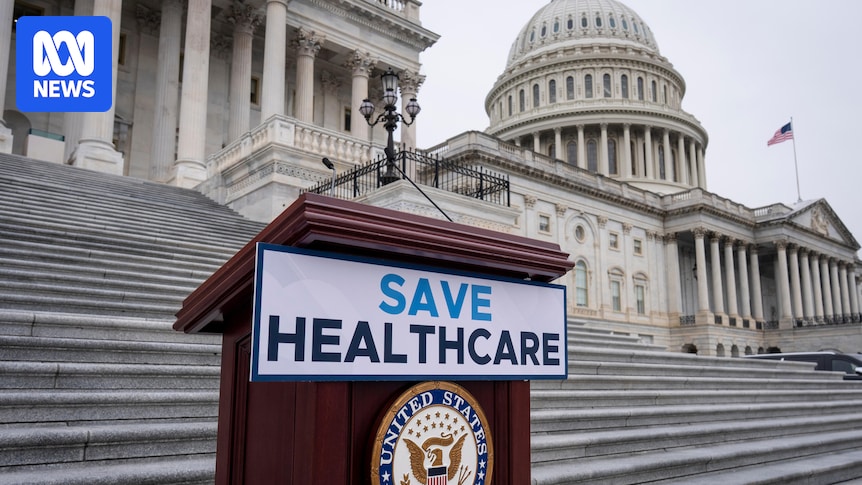
The United States Senate is poised to pass amended funding legislation, moving the nation a step closer to ending its longest-ever government shutdown. In a marathon voting session on Capitol Hill, eight Democratic senators joined Republicans to end debate on a proposed funding bill that would finance government operations until January 30, 2026.
As senators engage in a series of additional votes on the bill, a final decision looms on whether to formally approve it and send it to the House of Representatives. This legislative push aims to resolve a political stalemate that has sidelined federal workers, delayed food aid, and significantly disrupted domestic air travel.
Legislative Process: What Comes Next?
While the Senate voted 60-40 to conclude debate on the funding bill, another crucial vote is required to formally approve it and send it to the House of Representatives. This vote is part of the legislative process unfolding in the Senate on Monday.
Once the Senate approves the bill, it must clear the House through another vote and be signed by President Donald Trump before the government can officially reopen. House Speaker Mike Johnson has urged politicians to return to Washington, D.C., promptly, given travel delays caused by the shutdown. However, he plans to issue an official notice once the Senate passes the legislation.
Johnson has indicated that House members will have 36 hours to return to Congress for the next vote, suggesting that the funding bill’s approval process may not conclude until at least Wednesday. Only after House and presidential approval will federal workers resume receiving pay, and government operations fully restart.
The Health Care Dispute at the Heart of the Shutdown
The government shutdown, which began on October 1, was triggered when Democrats withheld support for the funding bill to negotiate an extension of healthcare subsidies. To advance to Sunday’s decisive Senate vote, a group of Senate Democrats, including Jeanne Shaheen and Maggie Hassan, along with independent senator Angus King, agreed to vote with Republicans.
These senators joined Democrats Tim Kaine, Dick Durbin, John Fetterman, Catherine Cortez Masto, and Jacky Rosen, who had previously expressed their intention to support the bill. Their concession came after Republican senators agreed to hold a future vote, likely in December, on expiring Affordable Care Act tax credits that have made private health insurance more affordable for millions of Americans.
“It is unclear whether the Democrats and Republicans will find common ground on the subsidies before that vote,” said a congressional aide familiar with the negotiations.
House Speaker Mike Johnson has stated he will not commit to bringing a similar vote to the House, adding another layer of complexity to the negotiations.
Potential Impact of Ending Healthcare Subsidies
If Congress does not act, the subsidies are set to expire at the end of the year, potentially leading to a significant increase in health insurance premiums for millions of Americans. Cynthia Cox from the healthcare research non-profit KFF warns that higher premiums could leave more Americans uninsured, shifting some costs to hospitals and the government.
“If the enhanced tax credits expire, politicians could still find other pathways to help Americans afford health insurance, though reaching any deal will likely be difficult in a bitterly divided Congress,” Cox noted.
The current deal also extends funding for the SNAP food-subsidy program until September 30 next year, preventing disruptions if Congress faces another shutdown during that period. SNAP benefits assist nearly 42 million Americans monthly, costing the nation’s economy about $12.25 billion.
Internal Divisions Within the Democratic Party
Following Sunday’s Senate vote, internal divisions within the Democratic Party have surfaced. The deal brokered by Senate Democrats to reopen the government has reignited debates over strategy and identity, particularly between centrist and progressive members.
Democratic Senate leader Chuck Schumer opposed the move to end debate on the funding bill, stating he could not “in good faith” support it after a lengthy caucus meeting. Independent senator Bernie Sanders criticized the decision as a “horrific mistake.”
In the House, several Democrats condemned their Senate colleagues. Texas representative Greg Casar described the deal as a “betrayal” of millions of Americans expecting Democrats to advocate for reduced healthcare costs. Meanwhile, House Democratic leader Hakeem Jeffries expressed support for Schumer’s leadership throughout the shutdown.
“The American people know we are on the right side of this fight,” Jeffries declared.
The Democratic senators who negotiated with Republicans argue they had little choice, citing GOP intransigence and the untenable pressure of the prolonged shutdown. “This was the only deal on the table,” Senator Shaheen explained.
Mallory McMorrow, a Michigan state senator running for the US Senate, remarked that the situation reflects a broader issue for the party. “A refusal to evolve and recognize this is not the same Senate that it was a decade ago or even five years ago means that the party is never going to win,” she said.
As the legislative process continues, the nation watches closely to see if a resolution can be reached that addresses both the immediate need to reopen the government and the long-term implications for healthcare policy.







